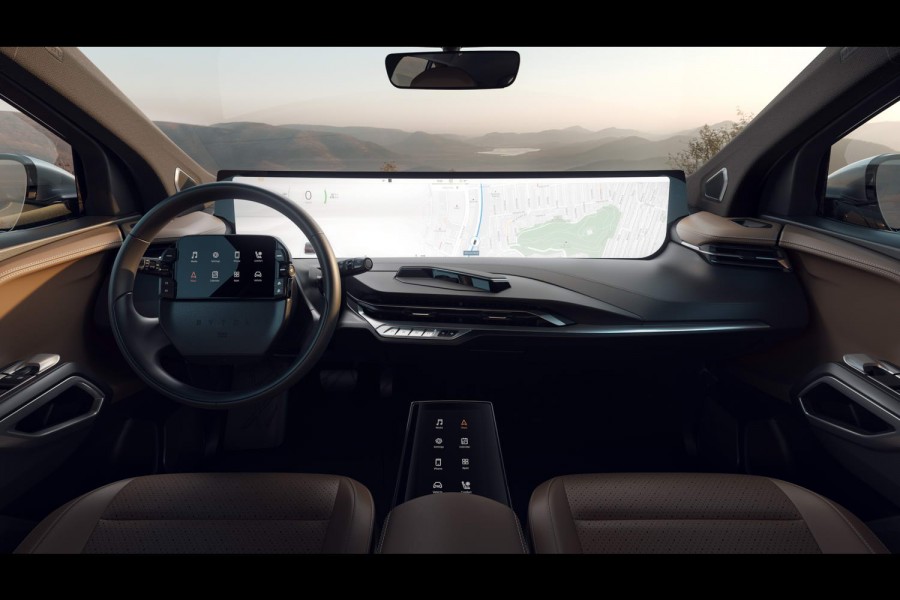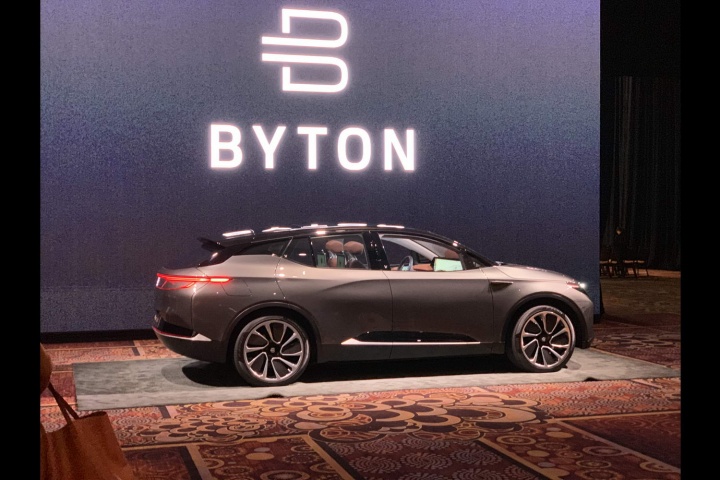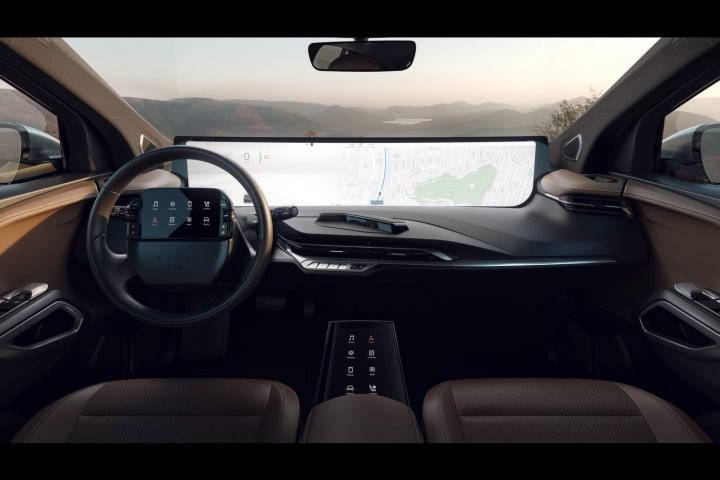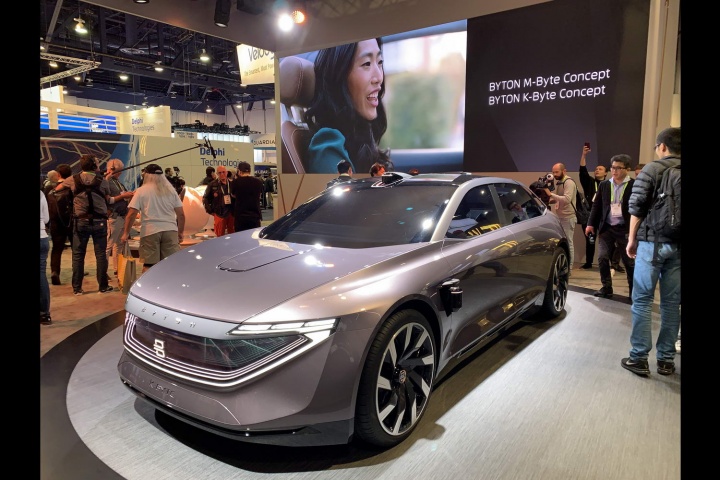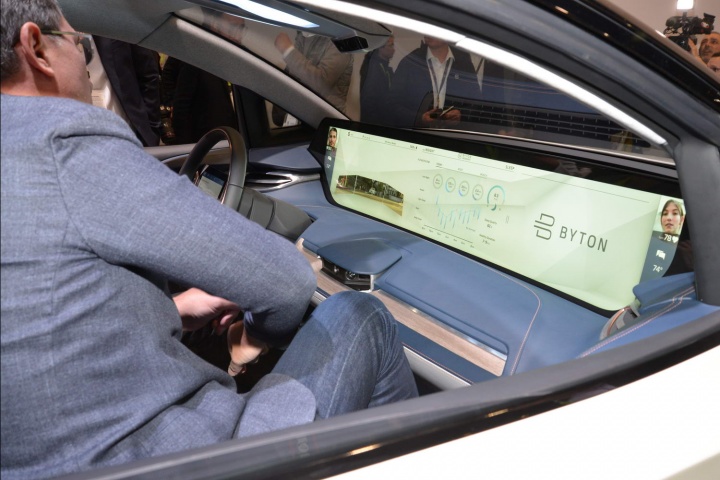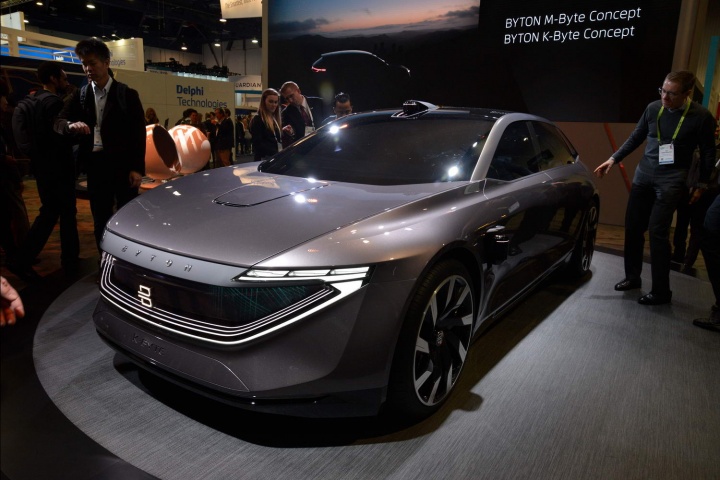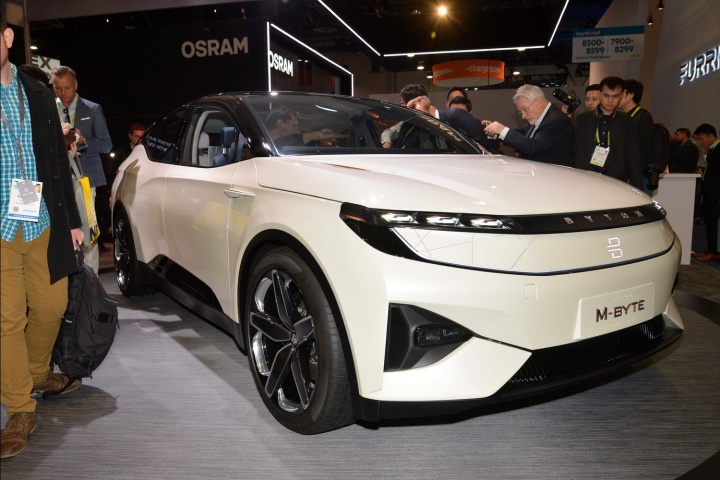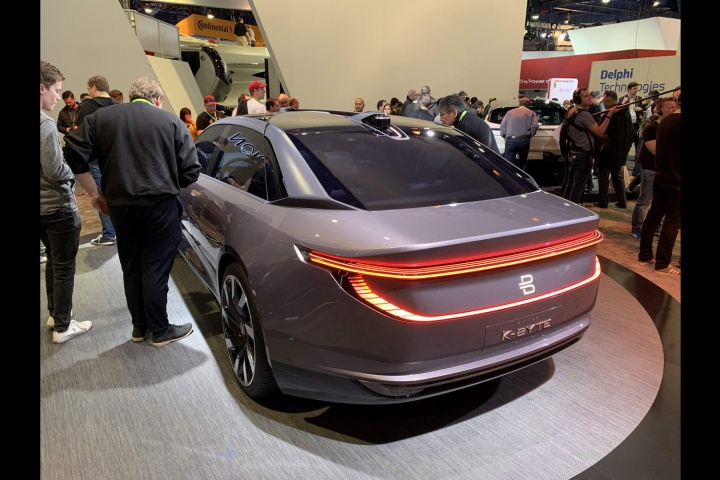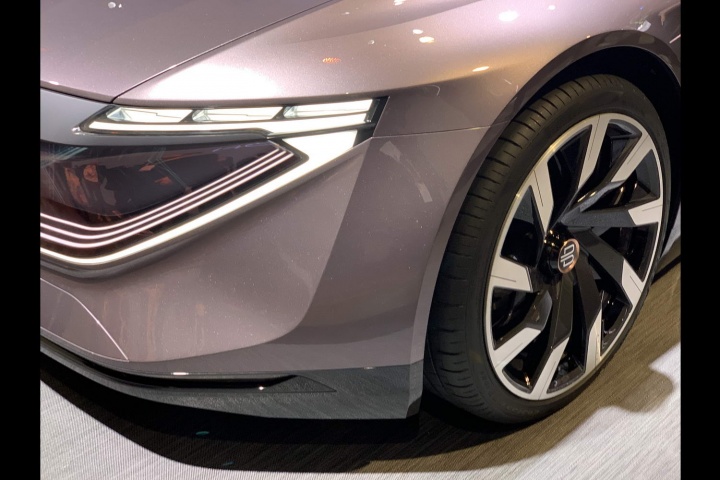What's the news?
Chinese electric car start-up Byton, whose chief engineer is Cork-born David Twohig, has shown off the screen-heavy cabin of its first production car, the M-Byte, at the Consumer Electronics Show (CES) in Las Vegas.
While the M-Byte's exterior styling is likely to closely follow the 'soap-bar' look of the concept version seen at last year's CES event, it's the interior that's likely to get more attention. Byton has shown off a cabin that gets a gigantic 49-inch digital screen, which stretches all but the full width of the interior. More strikingly, and presumably working on the basis that if one screen is good, more screens are better, the M-Byte will get a touchscreen mounted in the centre of the steering wheel, which will take care of most of the high-usage controls for the driver. There's a third, eight-inch touchscreen that allows the front-seat passenger to control what's happening on the big screen, and more screens for those in the back seats.
According to Byton: "We focus on your need for seamless, simultaneous access to both your digital content and safe interactions - to design an interface that is entirely inspired by you. Giving your digital life the room it deserves, our Byton Shared Experience Display is the largest screen ever fitted in a serial production vehicle."
The M-Byte is set to go into production later this year, with US sales planned for 2020 at an expected price tag of around $45,000. While European plans are still unconfirmed, let alone Irish plans, that would suggest a price here of around €55-65,000 depending on the specification.
The M-Byte will be a rival to the likes of the Audi e-tron and Jaguar I-Pace, as well as Mercedes' incoming EQC and, of course, various Tesla models. The basic version will come with a 71kWh battery pack, promising a range of around 400km, with a rear-wheel-drive 272hp single electric motor setup.
A more expensive model will get four-wheel drive, with 475hp from twin electric motors, and a larger 95kWh battery pack for a claimed 520km range.
It's not just about electric power, though. Byton wants to take a global lead in autonomous driving, and doubtless the steering-wheel mounted touchscreen is a key part of how drivers will interact with the M-Byte's expected 'Level 3' automated driving setup when it's launched. Level 3 means that while the driver is still in overall control, the car can take care of a large proportion of the driving without intervention, although legislation doesn't allow for this in most markets yet. Byton is saying that it expects to upgrade its cars to Level 4 automation - fully hands and eyes-off driving - by 2020.
David Twohig, the car's chief designer and engineer (who previously worked on the Nissan Qashqai, Renault Zoe and Alpine A110) said that Byton is: "Focusing on what would be in the old marketing speak a 'genuine un-met need.' A genuine human requirement. Because car guys, like myself, we love cars and we've created these beautiful things, which are a symbol of human freedom, but we've created a problem. We've created an environmental problem, about which many people can speak more eloquently than I, but we've also created a problem of serious congestion in the major cities of the world. That's true in Paris, in Dublin, in London, in the massive urban centres in Asia. So people are spending hours of their day stuck in traffic jams, and we're guilty of that. It's partly the car industry's fault, and Byton is genuinely thinking about how we can give that time back to the driver, and the passengers, and the user of the car. Make it so that time in the car can be genuinely used. That's an interesting challenge, and we're deeply, deeply thinking about it."
So far, Byton has managed to avoid the sort of highly public financial meltdowns suffered by its Chinese rival, Faraday Future, and the controversy attached to Tesla. It has inked a deal with established Chinese car maker FAW Motors to help bring both the M-Byte crossover, and the upcoming K-Byte saloon, to the market.
And to the Irish market? Well, the chief engineer is a Corkonian, so very probably, yes.

